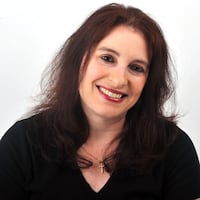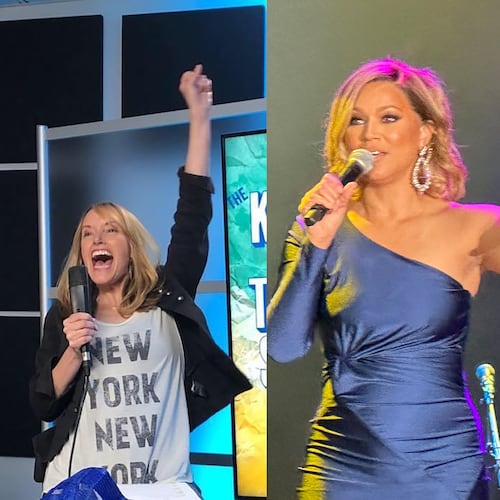Editor’s note: With live music and concert reviews on hold due to COVID-19, The Atlanta Journal-Constitution is focusing on how Georgia musicians are spending their time in our feature, Mic Check.
In January, Virginia Schenck released her fourth album, “Battle Cry.”
Filled with songs that explore societal justice — including interpretations of classics such as Billie Holiday’s “Strange Fruit,” a soulful jazz rendition of “America the Beautiful” and an intuitive reading of the Pledge of Allegiance — the album turned out to be a prescient release.
Schenck, an Atlanta resident since the mid-'80s, has been a staple on the jazz scene but also spent many years as a music therapist. (She still does some continuing education and teaching.)
Having studied and performed with jazz singer Bobby McFerrin, Schenck isn’t a conventional artist, but, rather, one who needs to feel the spontaneity that comes with jazz performance.
Though her last live show was almost a year ago, Schenck doesn’t see herself back onstage until possibly next fall. “I’m one of the more cautious ones in the health arena, so I’m playing that by ear,” she said.
Chatting earlier this month from her Atlanta home, the thoughtful Schenck talked about “Battle Cry” and how she’s been spending time the past few months.
Q: How has life been?
A: It’s a roller coaster. My CD came out in January, and I was supposed to tour in support of that in April-May, and then we kicked it to the fall, and that didn’t make sense either. I know some (artists) are starting to get out and do some things and stream, but for me, the beauty of live performance is live performance, particularly with this kind of project. As soon as the pandemic happened, I thought this is a good time for me to dig even deeper and learn even more about racial healing and white privilege, so I’ve been doing some things privately, studying and working with some small groups in civil rights and human rights work. I really feel like I have my ear to the ground because everything is changing so fast, which is both exciting and horrifying, with the extremes we’re getting at once. The kind of artist I am, I love to entertain, but usually, there is a message or deeper meaning than the music. If I were to sing right now, I want to sing the world a lullaby, and just be soothed. I’m doing lots of listening, lots of reading, self-study and talk. I planted a vegetable garden this summer. I tend to like to do cross-stitch and knitting.
Credit: Contributed
Credit: Contributed
Q: Have you been listening to anything different or interesting?
A: Not really. I mainly go back and clean out my office and files and self-reflect on what I’ve created so far and recalibrate. Am I doing what I want, when the world does gain some more momentum? There are a few artists I keep tabs on, but for the most part, I really want it quiet. I’ve been fascinated to see how musicians responded. I’m an introverted artist and others are extroverts who are dying to be on stage. That’s not my feeling. I only step on stage when I have something to say or do. Particularly in jazz, there is so much we improvise in a live setting.
Q: Tell me about the inspiration behind “Battle Cry.”
A: In 2016, I started speaking from the stage encouraging people to go vote. I was just reflecting on voting and what a privilege it is, and it dawned on me that my maternal grandmother was a suffragette in Philadelphia and that was only two generations (ago). That revelation hit me hard, and I started thinking about our African American brothers and sisters and voter suppression and started reflecting on it. I was already there with (Donny Hathaway’s) “Sack Full of Dreams,” and I added “America the Beautiful” and "Abraham, Martin and John” (a 1968 song in tribute to four assassinated Americans). And then when the election didn’t turn out the way I hoped it had, I saw the world turned upside down, and it set me reeling into more about human rights and democracy and reading about jazz and democracy. In 2018 is when I put it all together and wrote “Hear My Battle Cry.” It just became clear to me… If we talk about the roots of jazz, we talk of a culture that had to make something out of nothing. That resilient spirit of the human is amazing. And we still have that.
About the Author
Keep Reading
The Latest
Featured





